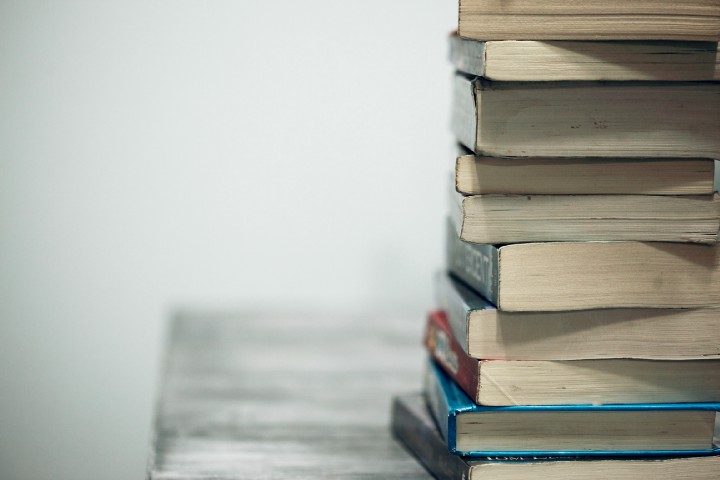
Rediscovering the Joy of Reading: Spirituality Edition
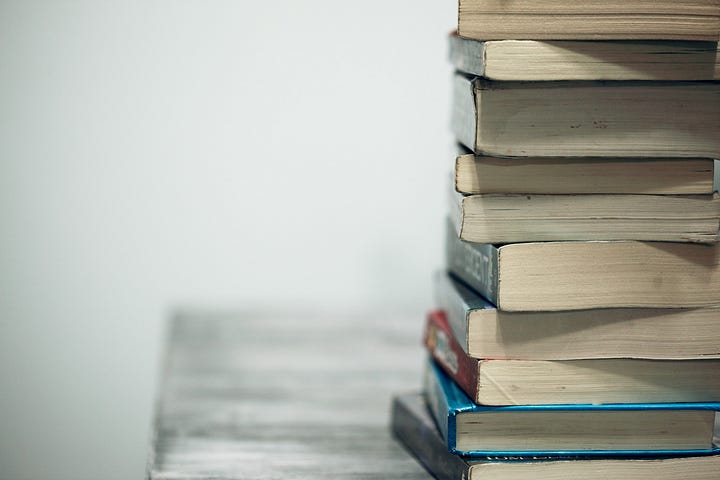
I’ve been reading a lot recently. Not as much as I’d like to, but more than I had been in years. I keep borrowing ebooks from the library. Sometimes they expire before I finish them, so they go back into my holds queue. I’ve been reading a lot of spiritual works and also some autobiography.
I’ve reconnected with music too and have some new favourites, but I feel that I should only deal with one topic at a time here, so I’ll share some of the books I’ve recently read and then publish some more posts about what I’ve been reading and listening to and why they’ve resonated with me.
When I started this post, I had about six books in mind, four of which are in the genre of religion. The concept: Share some of the quotes and paraphrases from the notes I took. However, in writing this recap, I remembered how much I got out of each. I contemplated. I wrote a lot. The word count grew. I left this piece of writing with two books. The upside: An opportunity for more content. I’ve been craving inspiration for my writing. I’ve been craving ideas. I need to write. So, I wrote.
Einstein and the Rabbi — Rabbi Naomi Levy
(Status: Library ebook unfinished. It’s back in my hold queue and on my Amazon wishlist. I think it’s one to buy to keep, but other books come up.)
Einstein and the Rabbi begins with a letter that Einstein wrote. This letter was a response to a man who had reached out after the death of the man’s son. Levy’s curiosity about that man sent her on a research quest. It was challenging to find what she was looking for, but she did learn that Rabbi Marcus was instrumental in freeing hundreds of children from Buchenwald. Among them, writer Elie Weisel. You can read more about Rabbi Marcus here.
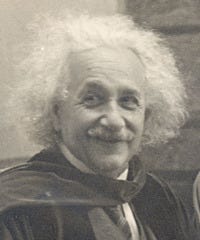
From Einstein’s letter:
“A human being is part of the whole, called by us ‘Universe,’ a part limited in time and space. He experiences himself, his thoughts, and feelings as something separate from the rest―a kind of optical delusion of his consciousness…” ―Albert Einstein
Einstein is said to have been an atheist but reading this seems to connect science with spirituality.
Life questions = soul questions
“Most life questions are soul questions. We have a gnawing sense that the life we’re living isn’t the one we’re meant to be.
So much this. At least, where I am in my life right now.
Your soul wants to teach you about your strength. It wants you to believe in your abilities and your gifts. It wants you to lift up your head with pride and claim your birthright It wants you to follow it through times of darkness. It will lead you.
I believe that the soul does lead if we listen to it.
Another statement about discomfort
(I keep coming back that theme spontaneously.)
The soul doesn’t deal in satisfaction or in bliss, but in open eyes and discomfort. The soul wants you to be uncomfortable enough to strive for more, to grow and to learn and to see what needs fixing in this beautiful and broken world.
Wow. Just, wow. I read this two months ago and rereading it now gives me shivers.
Connecting to the soul is the key to a life of meaning and fulfillment.
Again, wow. My eyes got wet, rereading that.
And that’s just from the first two chapters.
Later on, in Chapter 9, Levy shares a belief that I’ve long held about food and community:
Food can teach you that you are part of a collective soul, that you are a member of a culture, of a people, with a common history and a shared destiny. Food can tear down that delusion of separation. Break bread with a stranger and you will create intimacy. Share a meal with your rival and you may find common ground.
I don’t remember which blog it was on, but years ago I wrote something similar, about how food brings people together and transcends culture. It’s almost a language of its own because it’s a form of communication that requires no words. I wrote that food is love. Cooking for someone is a display of love. I used similar words to Levy. Rereading these words fills my heart.
Prayer
Prayer allows us to see through the soul’s eyes. It opens us up to our daily blessings, and helps us align the soul’s highest intentions with the body’s highest actions.
Prayer takes many forms. It can be prayer in a place of worship, or it can be your own, made-up words, a pause to thank powers more significant than yourself, the universal energy, however you define God. God isn’t a man in the sky; it an intangible entity that is given a label but doesn’t have one definition. That’s my belief, anyhow.
The Tao Made Easy — Alan Cohen
(Status: Borrowed and returned.)
Another Jewish writer — in case his last name didn’t indicate as much. I appreciate Jews who go beyond the Old Testament monotheistic dogma. I connect to them because I identify with them. I was raised Jewish and went to Hebrew day school. My “religion” and “spirituality” are separate. A few years ago, I realized that I prefer my religion traditional and free of the “woo” that I welcome outside the synagogue walls. Within those walls, I connect deeply to my community and a different aspect of God than I do outside those walls. I want to learn about and experience it all.
From the publisher’s book description:
“Cohen delves into one of the world’s most venerated wisdom texts for answers and brings the lofty and enigmatic concepts of the Tao Te Ching down to earth in fresh, easy-to-grasp language with practical, personal examples we can use to uplift our daily lives.”
Cohen warns not to take the Bible literally.
To believe that every single word in the Bible is the word of God, despite millennia of translation, editing, interpretation and omission, represents a form of laziness in which we are unwilling to exercise our God-given faculty to discern truth from fabrication.
The translating, editing, interpretation, is how I argue that we don’t know the historical truth. Archeologists claim to find truth in some stories (“the original location of!”), but even that is conjecture. Years ago I theorized that all religions began the same but that storytelling, translation and editing created variations, like a game of Broken Telephone. In the end, they all come down to statements such as “Love thy neighbour.” (I spell in Canadian.)
Living according to your nature
When we live according to our nature, we don’t need anyone else to prescribe our path for us. We know all we need to know from the inside out.
In other words, trust your intuition.
Reality vs. perception
You do not have the power to create reality. Reality has already been created quite nicely, and you are not endowed with the right to tinker with it. Reality is, regardless of your opinion for or against it or the stories you make up about it. What you do have the power to create is your experienceof reality.
In my notes, I both summarized this statement and quoted it in its entirety because I knew I might want to share the quote. (Like now.)
Perception is an interesting thing. Firstly, your experience of reality is different than mine because you bring experiences that I don’t. Our experiences shape our understanding. Concepts of truth and accuracy come from whether or not we relate. Take, for instance, two people watching the same TV episode:
Person 1: “That would never happen. It’s unrealistic! That’s now how it happens in the real world!”
Person 2: “It happened to me.”*
(Obviously, I’m not talking about shows with dragons, demons and such. When people try to point out unrealistic elements in such shows, I respond that there is no Hellmouth either.)
Our past informs our present. We repeat the same argument with our partner, or with every break up we recapture past heartbreak — even on a subconscious level.
I said something similar in a Twitter thread a couple of days ago, that when we get upset about an example of injustice, or what we see as one, it’s not this one injustice but an accumulation of all of them. We weigh the situation with all those others attached to it. I suppose it’s like rocks in a bag. You start with one stone that makes the bag heavy. Add another, and the bag gets heavier. Soon, you’re ladened with rocks.
Secondly, everyone tells themselves stories. Everyone. Two of us in one conversation could experience it completely differently because the narrative in our head is different. Words, body language and tone of voice are often interpreted in ways that aren’t congruent with what the speaker said.
Struggle vs. ease
In a chapter called, How Easy Can It Get? Cohen says,
You may still be burdened by the belief that your life must be difficult and you must struggle for your good. You might even believe, “If it’s not hard I must not be doing it right. I must be cheating or missing something.” These are debilitating ideas. You can allow all to be done for you and through you.
I have this conversation with my partner all the time because he believes that life and work should be hard, while I believe in being in the flow and that we can still approach challenges with positivity. I tend to distinguish “ease” from “easy”. Ease is a state of mind. Easy is about skill mastery. You can be challenged in a task but approach it with qualities such as grace, gratitude and reverence.
I had this conversation with my partner yesterday after sharing a statement that I’d read the day before in Howard Stern’s new book (Howard Stern Comes Again) that reminded me of him. The opposite of Cohen’s statement, Stern shared, “If I ever enjoy the process, I know I have somehow produced something worthless.” Stern’s self-proclaimed perfectionism serves him well, and it’s impressive. It works for him. It’s not the only way, but it’s made him successful. (In an interview with Jerry Seinfeld transcribed in the book, Seinfeld tells Stern, “I’m not big on enjoyment. I don’t think it’s that important. I think what’s important is they enjoy it.” “They” being the audience. I’m not going to argue with Jerry. Whatever works for you.)
So, do we need to suffer for our art? Are the most successful people those who believe that their life must be difficult? I’d like to see a report on that. I do know that struggle can lead to burnout and that it taxes the immune system.
Later on, in The Tao Made Easy, Cohen makes the controversial statement that if you really need something in the material world, it will come without struggle or strain. I mostly believe this, but I also believe in taking action. With so many people without necessary things, it’s hard to accept the “we have what we need, what we need will come” rhetoric. That all said, I have been miraculously able to pay my rent for the past several months, so maybe it is true.
Trust in the experience
When we trust that what is happening is helping us, we end up in our right place.
A variation on “Things don’t happen to us, they happen for us.” I’ve liked that one for a long time.
When you need to do something you don’t want to do
Two ways to minimize resistance:
1. Don’t engage in activities that you hate.
2. If you need to do something you’d prefer not to, drop your resistance to it. This is the fastest way to cruise through your life with a minimum of stress and pain.
In my experience — and most people’s, I suspect, #1 is often realistic, but #2 is more practical than #1. You need to adult. Lean in. Dropping the resistance and approaching with love (or grace, gratitude, or reverence as I suggested above) will make things flow more easily.
Often the idea of doing the work is worse than the work itself. There are lots of ways to enjoy the activity. If it’s a tedious job that doesn’t require a lot of thinking, listening to a podcast or music in the background might help pass the time. Start. Break it into steps. Commit to just a small chunk of time to start. Be aware of the times of day that you’re both productive.
A tangent about advice
Dropping your resistance is similar to Mark Twain’s time management advice to eat the biggest frog first. (Google gives lots of references for that, but since I’m writing on Medium I’ll share the first Medium result that showed up, by @alltopstartups.) There aren’t that many pieces of unique advice. These “pro tips” etc. belong to a small number of categories with similar themes. It’s their presentation, words and context that makes them unique. The who (said them), where (they said it), when (concerning their life and yours) help determine whether words resonate. The same things might have to be repeated dozens of ways for it to resonate with you.
And yes, minimize resistance. If you need to,

When you’re dealing with challenging people
A variation on advice I’d read previously, paraphrased and quoted here:
Regarding protecting yourself when dealing with a “challenging” person, ask yourself how you can protect yourself from them. Don’t meet the person on their terms. Refuse to “enter their cave of illusions”. Stand firmly in the light. Maintain your dignity, peace, and clarity, no matter what that person does.
Reframe your vision of this person as a friend who has come to help you tap into your soul and build spiritual muscles you would not have developed had your relationship been easier.
Some people are assholes. Everyone has baggage. Some people are delusional. Their shit is not your shit. Again, variations of this advice abound.
On relationships
The secret to successful relationships is to let every relationship be what it wants to be. Ask each relationship to reveal its purpose to you. Accept the blessing offered, rather than the one you’re trying to create. When a relationship has served its purpose, there is no use to try to hang onto it.
Friendships. Marriages. Employment situations. Everything comes and goes. When the time comes for it to go, that’s okay. There’s something else on the horizon. You can release and let go and welcome what’s next.
On humility
Humility is not about playing small, it’s about putting the smallness of the human personality aside to make way for the greatness of the Tao to shine.
I like that one a lot.
On equilibrium
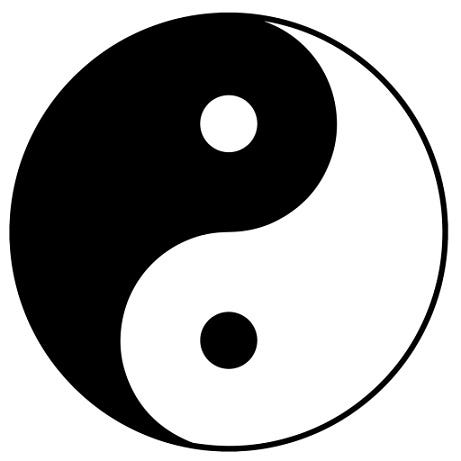
These might or might not be direct quotes:
Nothing in the world of form is totally good or totally bad. How we use things determines their purpose, value and results. Take care to not give your power away to a person or group you believe is perfect.
(Emphasis mine.) Religious groups. Political clubs. Cliques.
For every dark experience, something good comes of it. Sickness invites you to improve your quality of life. Painful relationships move you to honour yourself and claim better. Losing a job can motivate you to create a more meaningful career.
This passage seems like common sense to me, but maybe it’s not, and we need regular reminders anyway.
Sidenote: In 2000, I got a tattoo of a yin-yang surrounded by two dolphins with bubbles. Not long after, a guy at a bar asked if I was a Taoist. I still remember his voice, his partial smile, and what I presumed was a mocking tone. I surmised that he was trying to call me on getting a tattoo that I didn’t understand. I knew what I was getting. The drawing that I saw on the wall of the tattoo parlour encompassed what I’d envisioned; The dolphins were closer to the idea of a Pisces symbol than any of the Pisces symbols I’d seen, and the yin-yang felt right.
How to get in the zone
The zone is based on the higher frequencies of joy, trust, flow and positive vision. You need to elevate your consciousness. You can’t get to something you love doing by doing something you hate. You can’t get to easy by way of struggle; to peace by way of conflict, to wholeness by sacrifice; to self-affirmation by self-denial. You have to attain a state of being that is closer to the experience you want.
This is what manifestation teachers share. This is “The Secret.” There’s a colourful funnel-like diagram called The Scale of Consciousness, developed by Dr. David Hawkins, Director of the Institute for Spiritual Research:
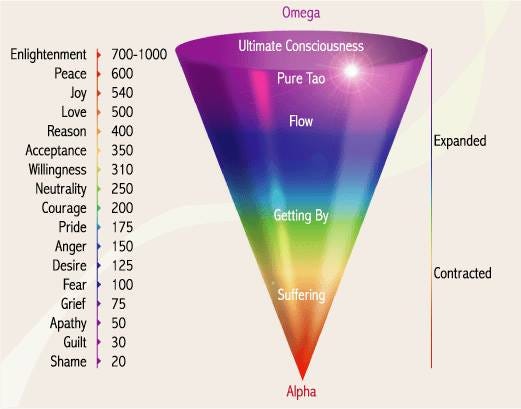
Purpose & passion
Your purpose in life is intrinsically connected to your passion…While part of you may have lost touch with your passion, another part knows exactly where it lives. Ask the part of you that knows your path and purpose to reveal itself, and it will… If you start by acting on the passion that already exists, even in a tiny way, it will expand.
One of my passions is writing, but for the last month, I haven’t been. I felt stuck. I lost touch. I was tweeting, meditating, and journaling after every meditation (yesterday, after 33 days of daily meditation, I took a day off). I did some business writing (I wrote a Media Kit), but I wasn’t “writing” to share publicly with name on it. This post is my long-winded way of practicing again, re-reading what I’ve learned, reconnecting with my passion for sharing. Hello, passion, my old friend.
A chapter called, “ Life After Ism”
Never argue that your way is the only way or the right way. One day you will be proven wrong, even to yourself. That day will be joyful because you will leave a smaller room to enter a greater one.
I sometimes enjoy changing my mind. More goodness:
More human suffering springs from narrow-mindedness and [the] aggressive imposition of beliefs than from diet.
Supporting that with a quote from Jesus, “It is not what goes in a person’s mouth that defiles him, but what comes out of it.”
→Yes, a Jew just quoted a Jew that quoted Jesus.
(In future posts you’ll see where I start to get uncomfortable with people presenting the whole Jesus thing as — well — gospel, but I’m way more comfortable with him than I used to be, acknowledging that I don’t have to believe that he was an incarnation of God in order to find him useful.)
This:
People feel powerful and insecure, so they place their faith in external gods, rituals and objects that they believe will save them, and then they demand others must agree with them so they can feel validated. When they cannot control nonbelievers, they need to get rid of them.
I can’t remember how much of this came from the Tao, but human nature doesn’t change. Wars begin over belief. Friendships lost. And on Facebook, phrases such as, “My belief is the right one, and if you don’t agree, unfriend me now!” have become common. (As I said in a comment yesterday, even if I do agree with the beliefs of people who say such things, I’d prefer not to have intolerant, narrow-minded bullies in my life.)
Nearing the end…
Even the Dalai Lama cares more about your character
Quoting the Dalai Lama: “I believe that the only true religion consists of having a good heart.”
The body as a conduit for love
And finally, in a chapter about the body,
The body exists to experience and magnify the presence of love. It is a communication device through which higher truth is received and extended The body is a means to an end, given to fulfill a purpose beyond itself.
That’s beautiful.
Honestly, this isn’t quite the post I had in my head initially. It was close, but it became too long to write everything. I’ve got more in me, though, so I’ll set aside time to get the rest out. I’ve got two more books on spirituality and growth to write about — one of which had a profound effect on me and gave words to what I’ve been experiencing — and one of which taught me way more about the New Testament that I ever knew and required patience and altered interpretation.
I have so much I want to say. I kind of wish I was a songwriter, to use that as an outlet. One of the books and some meditation messages did inspire me to write a song/poem for the first time in decades, but I think it’s awful right now and that if anyone sees it, it won’t be for a couple of years.
More coming up. The passion spark has been ignited.

